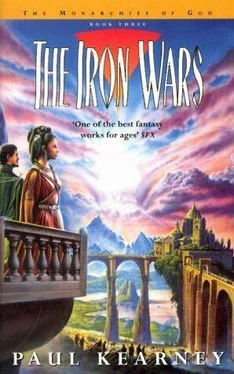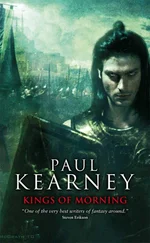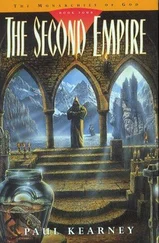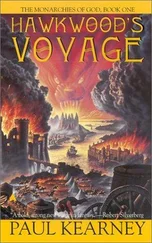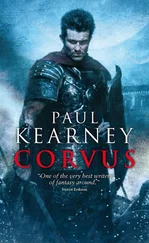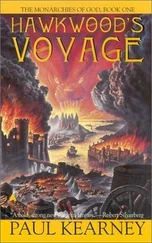Paul Kearney - The Iron Wars
Здесь есть возможность читать онлайн «Paul Kearney - The Iron Wars» весь текст электронной книги совершенно бесплатно (целиком полную версию без сокращений). В некоторых случаях можно слушать аудио, скачать через торрент в формате fb2 и присутствует краткое содержание. Жанр: Фэнтези, на английском языке. Описание произведения, (предисловие) а так же отзывы посетителей доступны на портале библиотеки ЛибКат.
- Название:The Iron Wars
- Автор:
- Жанр:
- Год:неизвестен
- ISBN:нет данных
- Рейтинг книги:4 / 5. Голосов: 1
-
Избранное:Добавить в избранное
- Отзывы:
-
Ваша оценка:
- 80
- 1
- 2
- 3
- 4
- 5
The Iron Wars: краткое содержание, описание и аннотация
Предлагаем к чтению аннотацию, описание, краткое содержание или предисловие (зависит от того, что написал сам автор книги «The Iron Wars»). Если вы не нашли необходимую информацию о книге — напишите в комментариях, мы постараемся отыскать её.
The Iron Wars — читать онлайн бесплатно полную книгу (весь текст) целиком
Ниже представлен текст книги, разбитый по страницам. Система сохранения места последней прочитанной страницы, позволяет с удобством читать онлайн бесплатно книгу «The Iron Wars», без необходимости каждый раз заново искать на чём Вы остановились. Поставьте закладку, и сможете в любой момент перейти на страницу, на которой закончили чтение.
Интервал:
Закладка:
“Colonel!” a voice shouted, and Corfe wheeled round. Joshelin was there, leading his horse, and with him a red-sashed moustached Fimbrian.
“I am Marshall Barbius,” the man said. “How many are you?”
“Thirteen hundreds.”
“That’s all? You’ve made quite a dent.”
Corfe leaned over in the saddle. He had received a heavy slash from a Merduk tulwar which had not penetrated his armour but which nonetheless was stiffening his entire torso. He hissed with pain as he shook the marshal’s hand.
“You must get your men out,” he told him. “Where is Martellus? I will save as many of you as I can.”
“Martellus is dead,” Barbius told him without emotion. “My right is encircled and the centre too closely engaged to break away. But I have given orders for the left wing to follow you out. We will cover your retreat.”
“How?”
“Why, by attacking, of course.”
The man was serious. Corfe did not know whether to admire or despise him.
“You must escape with me,” he told Barbius, but the marshal shook his head.
“My place is here. What is your name?”
“Corfe Cear-Inaf.”
“Then look after my men, Corfe. Joshelin, you go with him.”
“Sir-”
“Obey orders, soldier. You must go now, Colonel. I will not be able to hold them for long.”
Corfe nodded. “God go with you,” he said, knowing Barbius would not survive. The marshal turned without another word and strode back to his embattled line. Joshelin passed a hand over his face, eyes closed.
“Sound me the retreat,” Corfe ordered his trumpeter.
Cerne gaped at him a moment, and then put the horn to his lips and blew. High and clear over the clamour of war came the hunting call of the Cimbrics, this time announcing the kill. Corfe wondered how many of his men could hear it.
The battle opened out. The Merduk right wing, badly mauled by Corfe’s charge, was reorganizing. Freed from its clutches for the moment was a motley formation of some six or seven thousand men, Torunnans and Fimbrians, who began to withdraw up the hill behind them, whilst what was left of the Cathedrallers formed a line to cover their retreat. Corfe kicked his exhausted horse into a canter and regained the hilltop, watching the battle unfold below.
A thousand surrounded Fimbrians out on the right were tying up ten times their number of the enemy and building a wall of dead around their pike square. Here on the left the western forces were in full retreat, the Torunnans running in a formless mob, the Fimbrians withdrawing in orderly fashion, by tercio. Their arquebusiers continued to fire aimed volleys at any of the enemy who ventured too close. But Corfe was concentrating on the centre, that howling, murderous chaos into which Barbius had disappeared. The Fimbrians there-hardly two thousand of them-dressed their lines, and began to advance.
Andruw joined him on the hilltop, reeking with blood, his horse earless where he had made too low a sword-swing. He did not speak, but sat and watched with Corfe as around the two of them the remnants of the Ormann Dyke garrison and Barbius’s left wing streamed past.
“In the name of God,” Andruw said in a shocked gasp as he saw the Fimbrians in the centre deliberately assault the main body of the Merduk host, thirty, forty thousand strong.
Their lines of pikes seemed inhuman, unstoppable. They actually pushed the enemy back, and began carving a swathe of slaughter deep in the Merduk centre. The enemy formations there recoiled from the machine-like efficiency of the Fimbrians. But it could not last. Already, the Merduks were flooding round the flanks and rear of the pikemen.
“Let’s get out of here,” Corfe said, his voice heavy and thick. “We can’t waste the time they’re buying us.”
He kicked his horse into motion again. The animal could barely manage a trot. Around him his command was reforming. He saw Marsch there, and Morin haranguing the excited tribesmen, in some cases physically pulling at them to get them to retreat. They wanted to stay and fight, and Corfe could readily understand why. For a moment he wished that he, too, were down there in the valley with Barbius, making a glorious end. Easier to fight than to think. Better to fight than remember. But he had his job to do, and he had men depending on him. How many now? he wondered. How many left? He felt a weary disgust, but masked it as he always did. A black-garbed Fimbrian, his uniform in tatters under his armour, stood before him and saluted him.
“Yes?”
“Formio, sir, Barbius’s adjutant. His orders are-were-to place myself and my men at your disposal. May I ask what your intentions are, sir?”
The Fimbrian was young, younger even than Corfe. He spoke stiffly, as if expecting to be given offence. Corfe found himself smiling at him.
“My intentions? My intentions, Formio, are to get us the hell out of here.”
THIRTEEN
They had forgotten that he had been blinded. His ravaged face was a shock which rendered them dumb. He wore the simple brown robe of an Antillian, a single ring and a fine Saint’s symbol of silver and black wood. A dozen Knights Militant, watchful, hard-faced men, ringed the walls of his chamber. There had been rumours of assassination attempts.
“Holy Father,” Alembord said, bowing deep to kiss the ring, “those whom I told you of are here.”
The High Pontiff Macrobius nodded and then spoke in a quavering voice, that of an old, tired man. “Strangers, introduce yourselves. And no ceremony, I beg. I hear your errand is most urgent.”
Albrec it was who spoke up. Siward was eyeing balefully the surrounding Knights, and Avila seemed taken aback, almost disgruntled.
“Holiness, we are monks fleeing Charibon, under the protection of a Fimbrian soldier. Our names are unimportant, but what we bear may seal the fate of nations.”
There was a long pause. Macrobius waited patiently, but Alembord snapped at last: “Well?”
“Forgive me, Monsignor, but what I have to say is for the Pontiff’s ears alone.”
“Merciful heavens, who exactly do you think you are? Holiness, let me take care of these upstarts. They are clearly eccentric adventurers, perhaps even in the pay of the Himerians. I will get the truth out of them.”
Macrobius shook his head with the first touch of asperity they had seen in him.
“Step forward, young man-the one who spoke to me.”
Albrec did so. As he came close to the Pontiff he heard the slight metallic grate of swords being gently loosened in sheaths as the Knights tensed. He moved slowly and deliberately until he was two feet from the Pontiff’s face.
And here Macrobius reached out and laid his hands on Albrec’s features, his old fingers feather-light as he traced his eyes, cheeks, lips-and the gaping hole which had been his nose.
“Your voice…I thought there was something amiss. What happened, my son?”
“Frostbite, Holiness, in the Cimbrics. We would have died had the Fimbrians not found us. As it was, we did not come away untouched.”
“A disfigurement can be a heavy trial,” Macrobius said with his blind smile. “But cruelty to the flesh can also refine the spirit. I see more now than I ever did when I had two eyes and sat in a palace in Aekir. Tell me your errand.”
Taking a breath, Albrec told him in a low tone of the ancient document he had found in the bowels of Charibon, a biography of the Blessed St Ramusio written by one of his contemporaries, Honorius of Neyr. In it Honorius stated that Ramusio had not been assumed into heaven in the twilight of his life as the Church had taught for over four centuries, but had set off alone to proselytize among the heathen Merduks of the east and had become revered among them as Ahrimuz, the Prophet. The two great religions of the world, which had battled each other for centuries and piled up a million dead in their names, were the handiwork of one man. The Saint and the Prophet were one.
Читать дальшеИнтервал:
Закладка:
Похожие книги на «The Iron Wars»
Представляем Вашему вниманию похожие книги на «The Iron Wars» списком для выбора. Мы отобрали схожую по названию и смыслу литературу в надежде предоставить читателям больше вариантов отыскать новые, интересные, ещё непрочитанные произведения.
Обсуждение, отзывы о книге «The Iron Wars» и просто собственные мнения читателей. Оставьте ваши комментарии, напишите, что Вы думаете о произведении, его смысле или главных героях. Укажите что конкретно понравилось, а что нет, и почему Вы так считаете.
